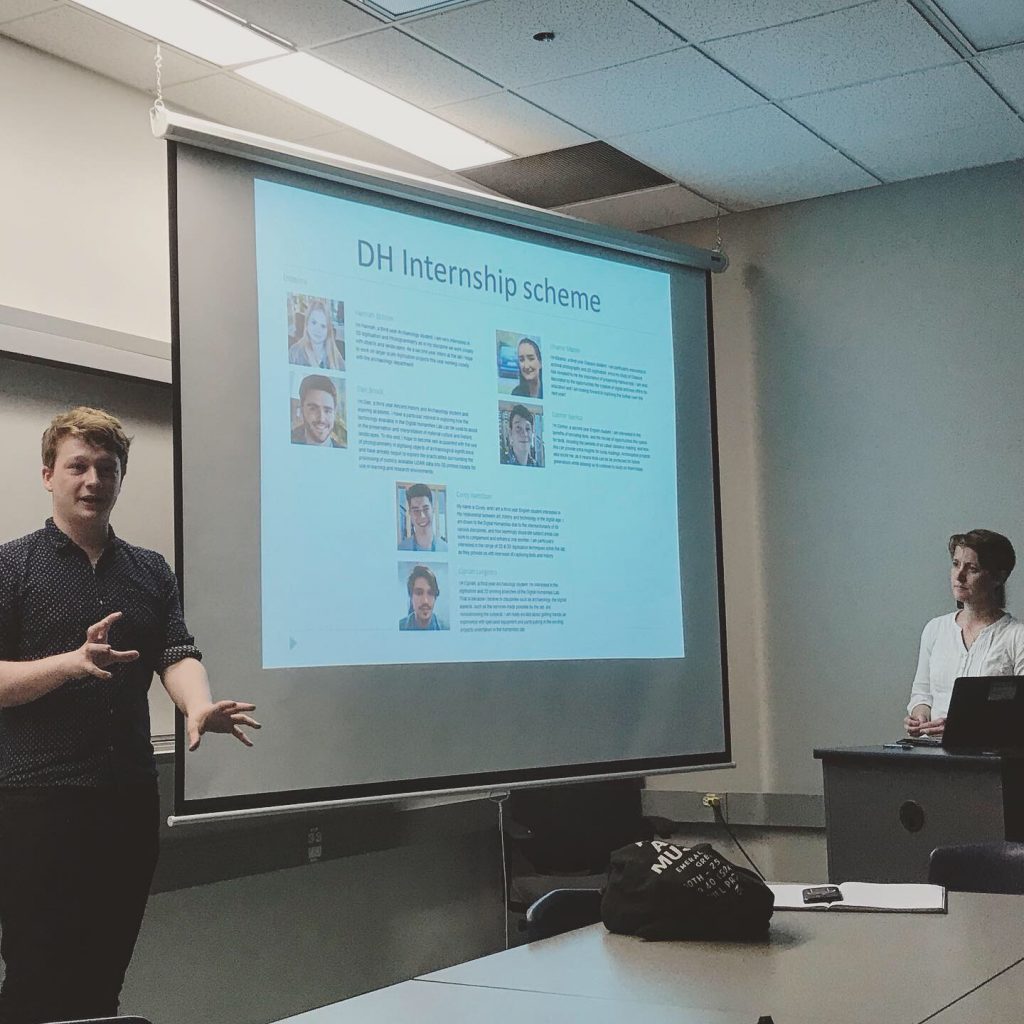Members of Exeter’s Digital Humanities Lab recently visited the University of British Columbia, Okanagan to to continue our very fruitful collaboration with the AMP Lab and the Faculty of Creative and Cultural Studies (FCCS). Following an initial visit with Prof. James Clark the previous year, Dr. Charlotte Tupman and 2nd-year UG student intern Connor Spence, who is one of our outgoing Digital Humanities interns, were very kindly hosted for the week by Prof. Karis Shearer, Director of the AMP Lab, and Dr. Emily Murphy, Assistant Professor of Digital Humanities, along with their student intern Stephen French.
One of the aims of our visit was to further our work on two training modules – one on audio digitisation and one on text encoding – which will be offered to Exeter and UBC-O students as online, self-paced modules. During the course of the week, we tested and edited our training modules, sharing them with members of UBC-O’s Department of World Literatures and Department of English and Cultural Studies and gaining valuable feedback during the process. Continue reading

